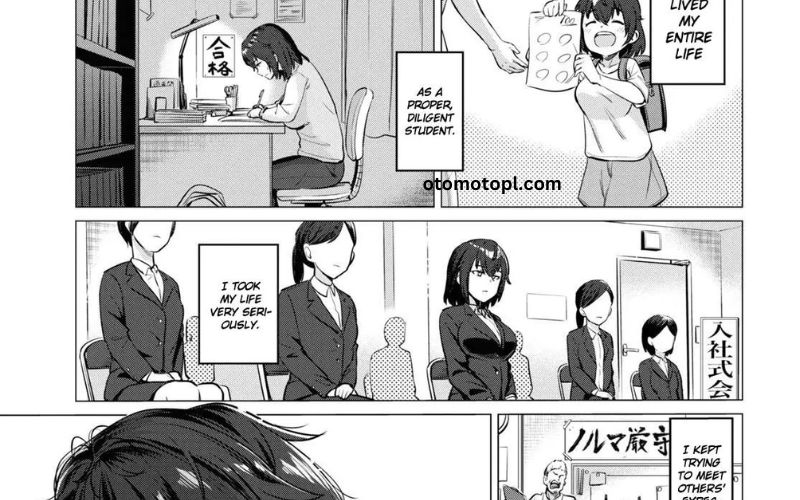The concept of “the more you take, the more you leave behind” is a profound one that resonates across various aspects of our lives. This principle suggests that there is a delicate balance between what we acquire and what we ultimately forfeit or lose in the process. As we navigate through our personal, professional, and social realms, understanding and embracing this concept can have a profound impact on our well-being, relationships, and overall sense of fulfillment.
Exploring the Concept of Give and Take
At the heart of this idea lies the fundamental balance between giving and taking. In every situation, we are faced with choices that involve a trade-off between what we gain and what we relinquish. Whether it’s in our personal lives, our careers, or our interactions with others, the decisions we make regarding what we take and what we give can have far-reaching consequences.
- Personal Growth: When we are overly focused on taking and acquiring, we may neglect the personal growth and development that comes from giving and sharing. The more we take, the less room we leave for empathy, compassion, and the cultivation of meaningful relationships.
- Professional Success: In the workplace, the temptation to prioritize personal gain over the collective good can often be strong. However, the most successful professionals often recognize that true success is rooted in a balanced approach that considers the needs of the organization, their colleagues, and the broader community.
- Social Dynamics: Our interactions with others are heavily influenced by the give-and-take dynamic. When we are too focused on taking, we may find ourselves isolated, lacking in trust, and struggling to build genuine connections. Conversely, a more balanced approach that incorporates giving can foster stronger social bonds and a greater sense of community.
Examples of How the Concept Applies to Different Aspects of Life
The principle of “the more you take, the more you leave behind” manifests in various aspects of our lives, and understanding these applications can provide valuable insights.
- Time Management: When we allocate too much of our time and energy to pursuing personal interests or obligations, we may find that we have little left to devote to the people and activities that truly matter to us. The more time we take for ourselves, the less we have to give to our loved ones, our communities, or our personal growth.
- Financial Decisions: In the realm of personal finance, the temptation to accumulate wealth and material possessions can be strong. However, the more we prioritize acquiring and hoarding, the less we may have to invest in experiences, relationships, and causes that enrich our lives and the lives of others.
- Relationships: Within our personal relationships, the balance between giving and taking can be particularly delicate. When one partner consistently takes more than they give, the relationship can become unbalanced, leading to resentment, disconnection, and ultimately, the loss of the relationship itself.
The Psychological Impact of Giving and Taking
The psychological implications of the “take more, leave behind” principle are profound. When we consistently prioritize taking over giving, we may experience a range of negative emotional and mental consequences.
- Decreased Empathy: The more we focus on our own needs and desires, the less attuned we become to the needs of others. This can lead to a diminished capacity for empathy, which can hinder our ability to form meaningful connections and contribute to the well-being of those around us.
- Feelings of Guilt and Shame: Excessive taking can often lead to feelings of guilt and shame, as we recognize the imbalance in our relationships and the impact our actions have on others. These emotions can be powerful drivers for change, encouraging us to adopt a more balanced approach.
- Diminished Self-Worth: When we consistently take more than we give, we may subconsciously feel that we are not worthy of the resources or opportunities we have acquired. This can lead to a negative self-perception and a diminished sense of self-worth.
How the Concept Relates to Personal Relationships
The concept of “the more you take, the more you leave behind” is particularly relevant in the context of personal relationships. The way we navigate the give-and-take dynamic can have a profound impact on the health and longevity of our connections with others.
- Reciprocity and Balance: Healthy relationships thrive on a sense of reciprocity, where both parties feel that they are giving and receiving in equal measure. When this balance is disrupted, and one partner consistently takes more than they give, the relationship can become strained and unsustainable.
- Emotional Intimacy: The ability to be vulnerable and share our innermost thoughts and feelings is a hallmark of deep, meaningful relationships. However, when we are overly focused on taking, we may neglect the emotional intimacy that comes from opening ourselves up and allowing others to do the same.
- Trust and Respect: Trust and respect are the foundation of any strong relationship. When we consistently take more than we give, we risk eroding the trust and respect that our loved ones have placed in us, ultimately undermining the very bonds that hold our relationships together.
The Importance of Balance in Giving and Taking
Achieving a balanced approach to giving and taking is essential for personal growth, fulfillment, and the cultivation of healthy relationships. This balance is not always easy to strike, as we may be influenced by various external factors and our own internal biases.
- Mindfulness and Self-Awareness: Developing a heightened sense of self-awareness and mindfulness can help us recognize when we are leaning too heavily towards taking or giving. By regularly reflecting on our actions and their consequences, we can make more informed decisions that maintain a healthy equilibrium.
- Prioritizing the Needs of Others: While it’s important to attend to our own needs, it’s equally crucial to consider the needs of those around us. By actively seeking to understand and address the needs of our loved ones, colleagues, and communities, we can strike a more balanced approach that benefits everyone involved.
- Cultivating a Generous Spirit: Embracing a generous spirit and a willingness to give of ourselves can counteract the natural tendency to focus solely on our own interests. By actively seeking opportunities to contribute, support, and uplift others, we can create a more fulfilling and meaningful life for ourselves and those around us.
Applying the Concept to Professional Settings
The principles of “the more you take, the more you leave behind” are equally applicable in professional settings, where the delicate balance between individual and collective success can have far-reaching implications.
- Collaborative Mindset: In the workplace, adopting a collaborative mindset that prioritizes the collective good over personal gain can foster a more positive and productive work environment. By actively seeking to contribute to the success of the team or organization, we can create a culture of mutual support and trust.
- Mentorship and Knowledge Sharing: Experienced professionals who are willing to share their knowledge, skills, and expertise with their colleagues can create a powerful ripple effect. By taking the time to mentor and guide others, they not only contribute to the growth and development of their team but also leave behind a lasting legacy of knowledge and expertise.
- Ethical Decision-Making: In the face of challenging professional decisions, it’s crucial to consider the broader implications of our actions. By prioritizing ethical behavior and the long-term well-being of the organization, our colleagues, and our clients, we can make choices that create a positive impact and leave behind a lasting positive legacy.
The Role of Reciprocity in Social Interactions
The concept of “the more you take, the more you leave behind” is also deeply intertwined with the principle of reciprocity, which governs many of our social interactions.
- Reciprocal Relationships: In our social networks, the give-and-take dynamic is often the foundation of meaningful relationships. When we engage in a balanced exchange of support, knowledge, and resources, we create a sense of mutual investment and trust that strengthens the bonds between us.
- The Power of Paying It Forward: By adopting a mindset of giving and contributing to others, we can create a ripple effect of positive change. When we take the time to support and uplift those around us, we may inspire them to do the same, creating a cycle of reciprocity that benefits the entire community.
- The Consequences of Imbalance: Conversely, when we consistently take more than we give in our social interactions, we risk damaging the trust and goodwill of our peers. This can lead to feelings of resentment, isolation, and a diminished sense of belonging within our social circles.
Lessons We Can Learn from “The More You Take the More You Leave Behind”
The principle of “the more you take, the more you leave behind” offers valuable lessons that can guide us towards a more fulfilling and balanced approach to life.
- Cultivate a Mindset of Abundance: By shifting our perspective from one of scarcity to one of abundance, we can recognize that there is enough to go around and that our personal growth and success need not come at the expense of others.
- Practice Gratitude and Appreciation: Regularly expressing gratitude for the people, resources, and opportunities in our lives can help us maintain a balanced perspective and appreciate the value of what we have, rather than constantly seeking more.
- Embrace a Legacy Mindset: Considering the long-term impact of our actions and the legacy we wish to leave behind can inspire us to make choices that create a positive and lasting impact, rather than focusing solely on short-term gains.
Conclusion
As we navigate the complexities of our personal, professional, and social lives, the principle of “the more you take, the more you leave behind” serves as a powerful guidepost. By cultivating a balanced approach that prioritizes giving as much as it does taking, we can unlock a deeper sense of fulfillment, stronger relationships, and a more positive impact on the world around us.




